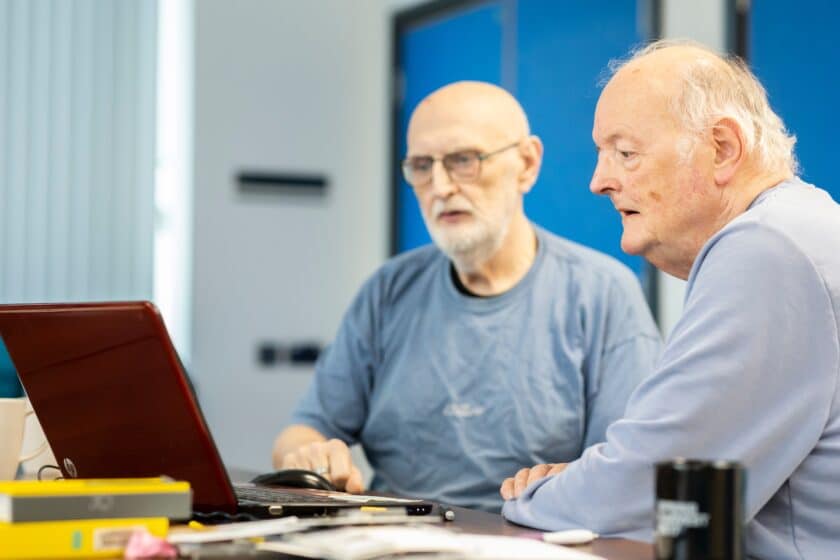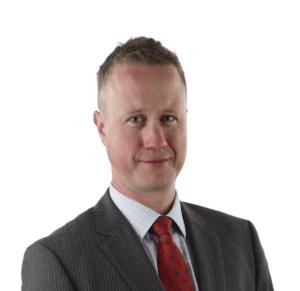As our expected lifespans increase, so does the complexity of long-term financial planning. This interview from the team at FundCalibre, explores how societal shifts, like extended careers and aging demographics, influence our financial goals. Carl Stick, co-manager of the Rathbone Income fund, gives his insights into the vital role of dividends, the importance of compounding, and how companies are embracing older workers. We also discuss the evolving opportunities in sectors like healthcare and pharmaceuticals, where innovation meets the challenges of longevity.
Why you should listen to the interview: Discover how longevity is reshaping financial priorities, why it’s never too late to start saving, how dividends fuel long-term growth, and where evolving industries like healthcare are creating new opportunities.
This interview was recorded on 10 December 2024. Please note, answers are edited and condensed for clarity. To gain a fuller understanding and clearer context, please listen to the full interview.
Interview highlights:
Why longevity is important for investors
“The whole question around longevity and the workforce living longer, staying healthy for longer, it is massively, massively complex. And we do know that it’s an issue that most global economies are thinking about. People are getting older. It puts a stress on workforces. If you have more people retiring and fewer people working, it has a big impact on pension schemes. It has a big impact on healthcare systems and so on and so forth.
“Then when you come down to the personal level, it’s the understanding that there is no generalisation you can make. Every individual has got a different story to tell and whether or not it’s down to physical wellbeing, desire, purpose, economic necessity, the argument about whether you carry on working what you are doing, how long you work for is a massively complex one that we’re all having to think about and deal with.”
The second best time is now
“There’s a Chinese proverb: when’s the best time to plant a tree? 20 years ago. When’s the second best time to plant tree? Now.
“And this is the whole idea of ‘when’s the best time to start saving?’ As early as possible, but if you can’t start, you haven’t started to saving, then start saving now. Trying to create a capital pot that in future years you can fall back on when you need it, but also if you can, if necessary, turn on and off the income.
“Because I think if people work for longer and work beyond retirement you are going to need to have that flexibility of income. I think dividend investing, you’ve got the compounding bit, and then the ability to be a little bit more flexible in the income requirements that you need.
“And one final point is when you think about our working lives, it is decades ago when you might leave school, work in the same place for 40 years, retire on a pension and then depart your mortal coil a few years later. I think what we’re talking about now is a working life, which needs to be more flexible. You will be in and out of work, you will need to retrain. And there may be a point in time in the future when you decide, I want to carry on working, but I need to be able to sort of turn on that income tap when I need it. And that is where we have argued that sort of income strategies are very important.”
What happens if we do live for longer? What does that mean for healthcare?
“The obvious area is the pharmaceutical sector and the healthcare sector. We talk about financial health, but physical health is just as important here. So thinking about pharmaceutical companies, obviously there’s been a lot of discussion, a lot of interest and media coverage over the last couple of years about weight loss drugs. And they have been a game changer. They are important because they treat a very clear medical need that’s global.
“What I think is interesting now is not just the first and second wave of these weight loss drugs and these obesity drugs, but looking at how they can be partnered with other treatments to deal with the co-morbidities that go alongside obesity and diabetes — lung disease, heart failure, chronic kidney disease, all of these things that actually have a massive impact on people’s health as they get older. So that is an area of interest. And you know, we have always had quite a large exposure to the pharmaceutical sector. So that’s one area.
“But also looking at pharmaceutical companies, especially in the vaccines area that are looking to preventative medicine, I think it’s gonna be fascinating looking ahead and the extent to which pharmaceutical companies are incentivised to reduce preventative rather than medicines that actually just cure symptoms. Because in the end we just don’t want to get it the first place. But that’s a different financial model.”
Does the old adage of holding your age in bonds still stand?
“I’m 55 and if my adult life started at 18 – and I’m touching wood here – fortunate to live until I’m at 90, I’m only halfway through my adult life. There’s a long time potentially ahead of me. So the idea of de-risking investments now is a bit of a nonsense.
“Now I don’t think you go out and start hitting sixes with your investments and just taking on too much risk because obviously the older you get the less opportunity you have to recoup any losses. The flip side is, I certainly do think that the risk you should be taking – if you are in a position – and if people are living longer, the profile of your investments at our age I think does need to change.
“I think you do need to think about having a little bit more risk in your portfolio because if you are going to live for another 30 years, you need to inflation proof your savings and you’re not necessarily going be doing that buying fixed income. You do need to have that compounding and that growth, and you do that by equity investment, but the level of risk that you’re willing to take needs to be appropriate as well.”
Conclusion: Living longer offers new opportunities, but also challenges that require careful financial planning. From the power of compounding to the role of dividends and the emerging themes in healthcare, there’s much to consider for long-term investing.
Main image: centre-for-ageing-better-BzJaluGzsSw-unsplash






























